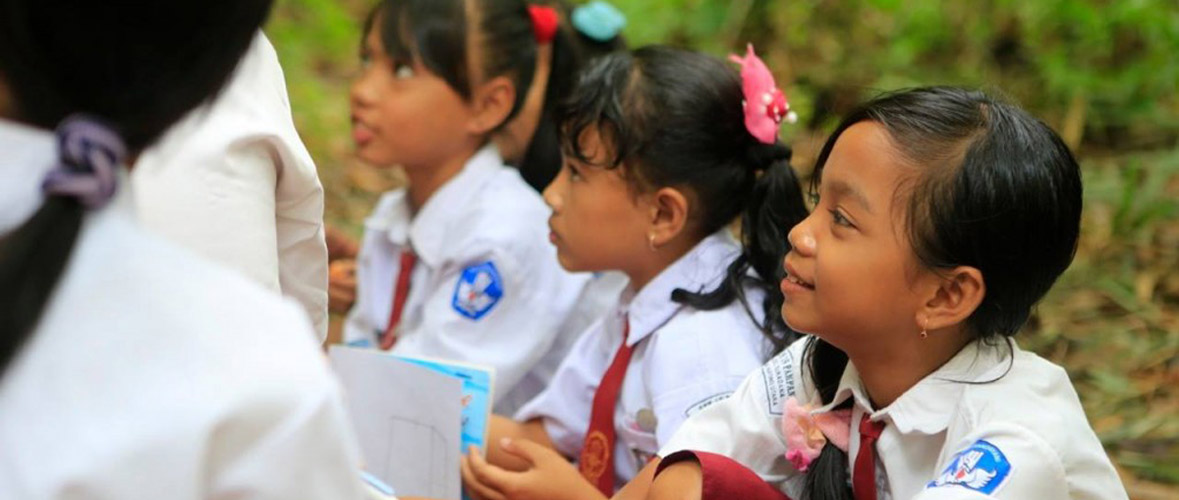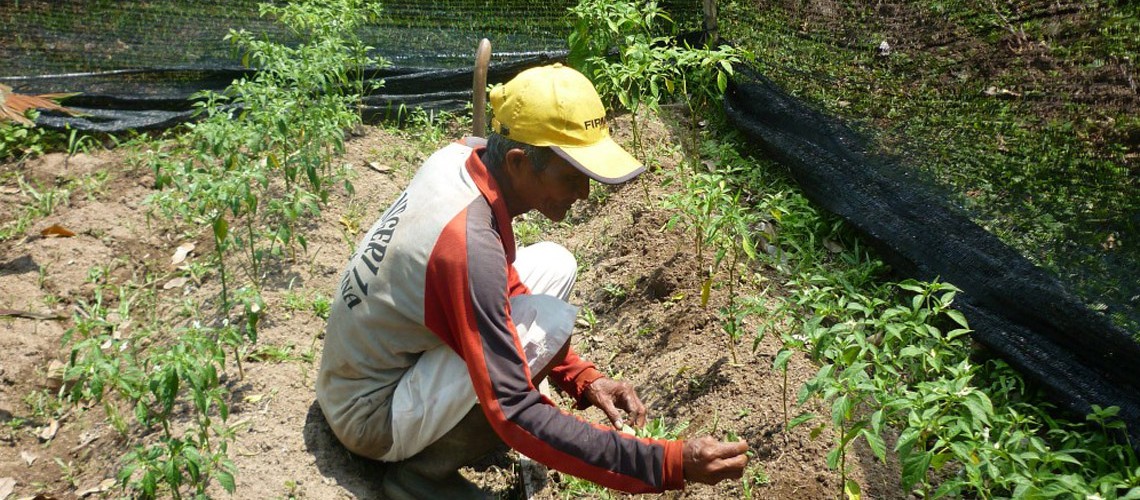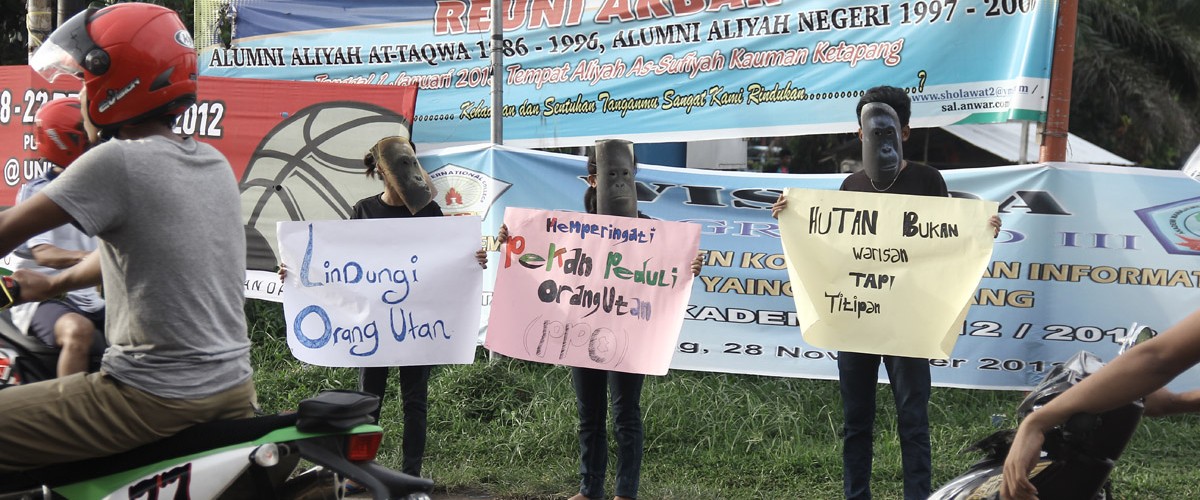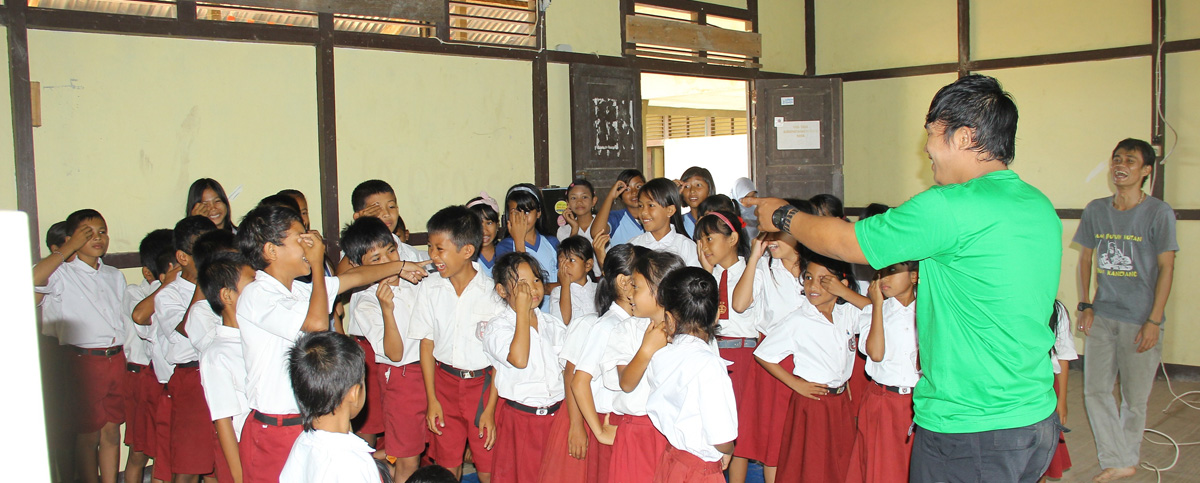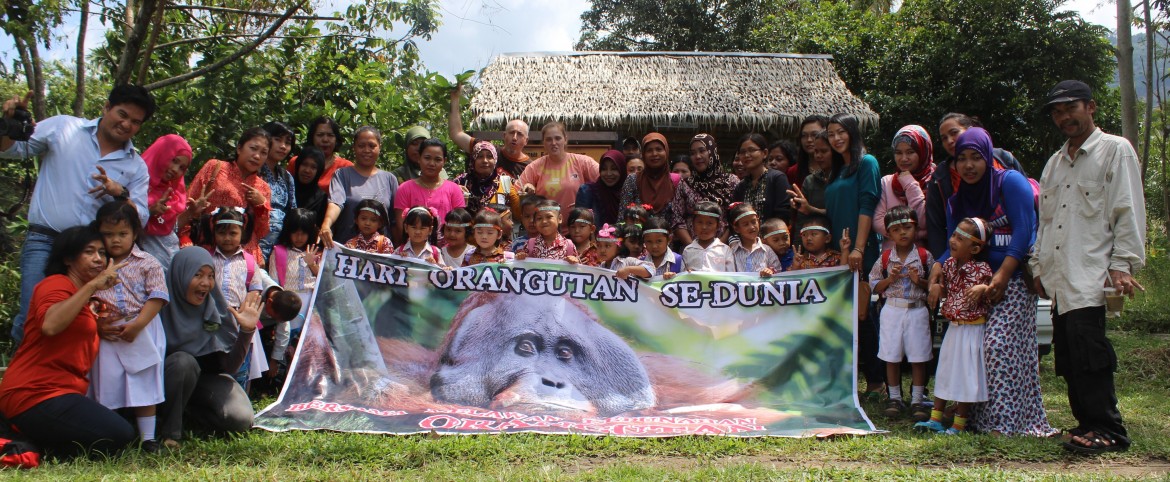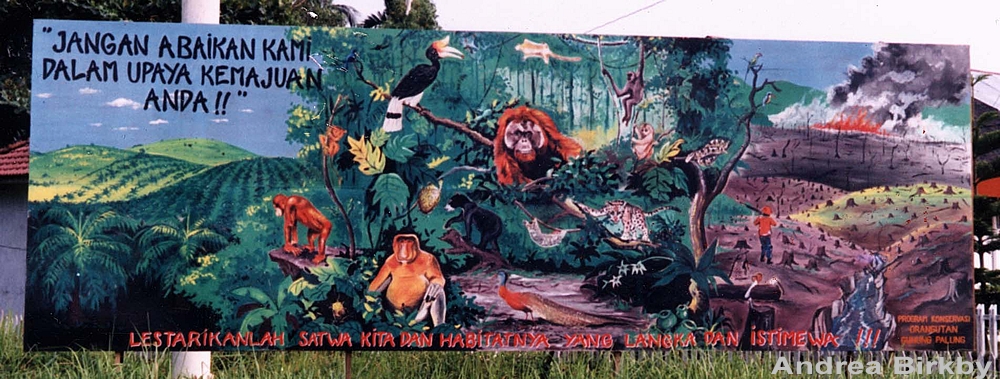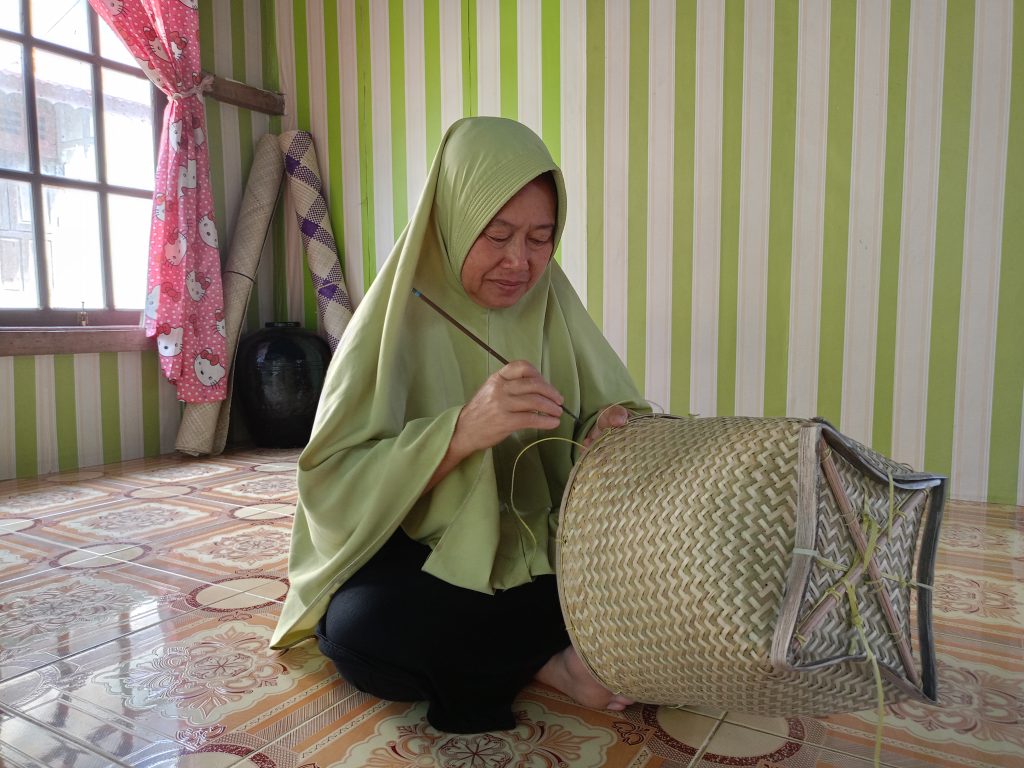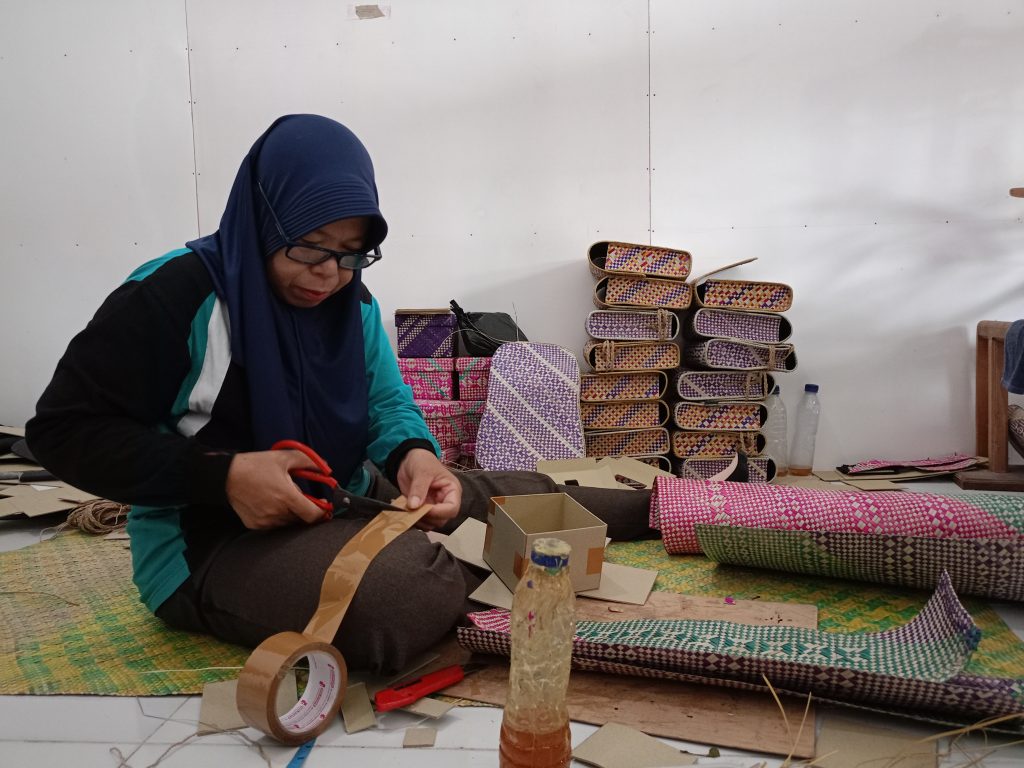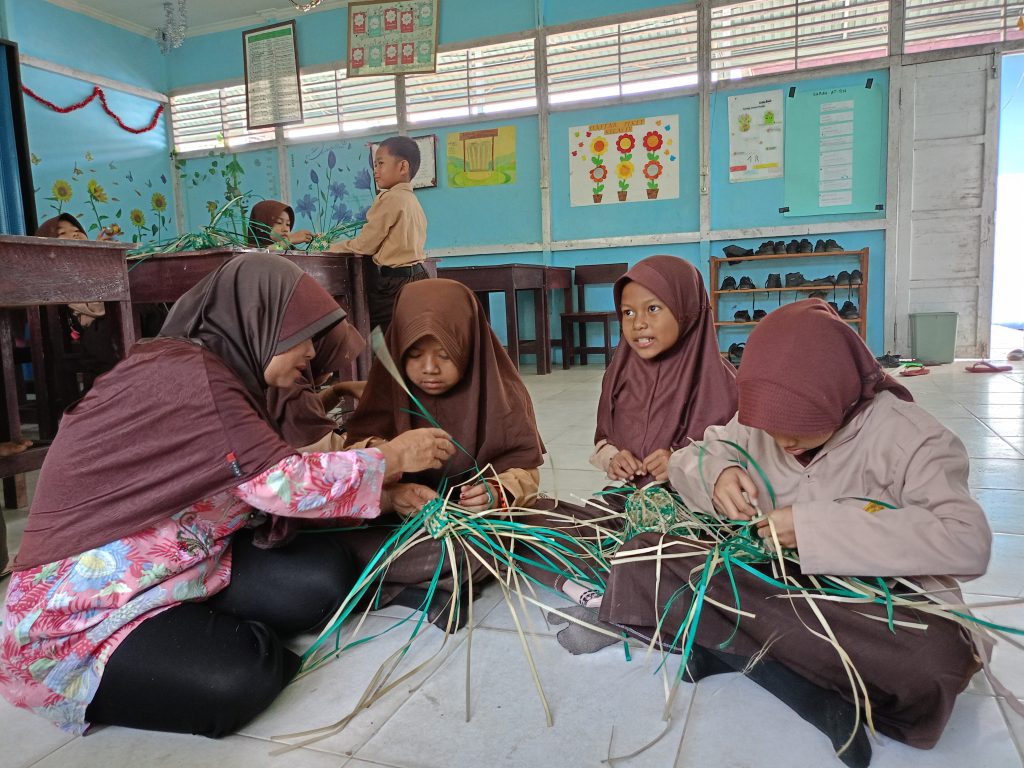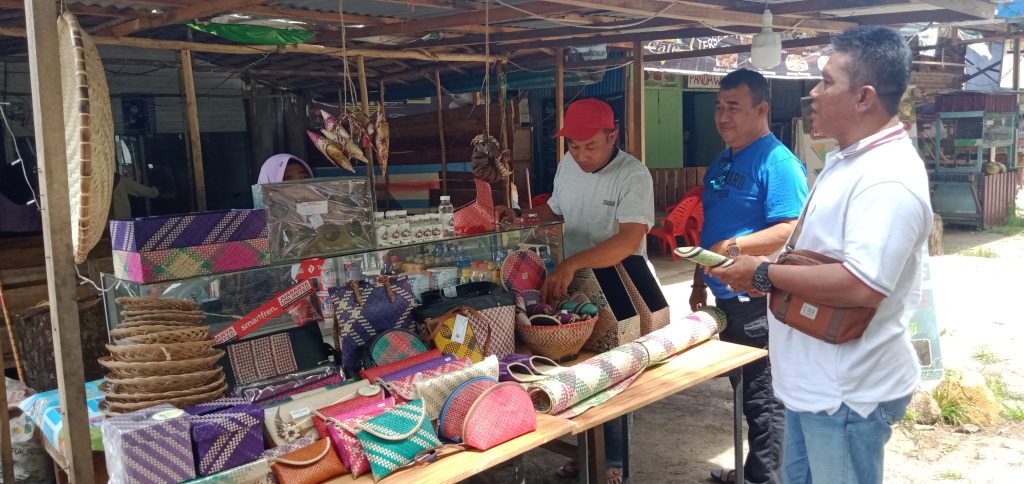By Ranti Naruri, Sustainable Livelihoods Manager, and Salmah, Sustainable Livelihoods Field Officer
The role of women in the use of natural resources brings a fresh perspective to conservation efforts. Women have a closer relationship with the environment around forested areas in terms of their use of Non-Timber Forest Products. Women have always been involved in daily activities around forest areas, looking for medicinal plants, finding food sources and looking for raw materials for Non-Timber Forest Products (NTFP) to be used in creating products to add to family income. In the interest of preserving traditional skills and building the capacity for sustainable livelihoods, Yayasan Palung, through the Sustainable Livelihood program, assists several groups around Gunung Palung National Park who utilize non-timber forest products to create handicrafts made from Pandanus, Nipah palm, and Resam ferns. These women make woven crafts from these raw materials found in the village forest area. There are several groups that produce a variety of woven crafts, namely the Ida Craft Women’s Group, the Peramas Indah Women’s Group, the Karya Sejahtera Group and the ResamKU Group. Two women, Ibu Aisyah and Ibu Saparidah, from the groups Yayasan Palung assists, shared their experiences about their expertise in utilizing Non-Timber Forest Products with us.
Ibu Aisyah is a 48-year-old woman who learned to make woven handicraft products when she was a child and continues to do so until this day. Aisyah typically creates mats and baskets. She derived her expertise from her parents who taught her as a child about which raw materials were available around the village directly adjacent to Gunung Palung National Park. Mrs. Saparidah is a 51-year old woman who uses forest products to create various woven handicrafts. She learned weaving from her grandmother as a child. Due to their skill and expertise, Ibu Aisyah and Ibu Saparidah were invited to several regions in Indonesia, including Jakarta and Papua, to serve as resource persons and trainers for other communities to utilize Non-Timber Forest Products. Through these experiences, their intergenerational traditional knowledge is being shared with new communities and new generations.
At the local level, woven products are marketed at Yayasan Palung’s Bentangor Gallery, at the Dekranasda (Regional National Handicraft Council), the North Kayong Regency Industry and Trade Office, our Mobile Market that we run at tourist attractions, and, exhibitions both at the local and national levels. The proceeds from the sale of these handicrafts are used to meet household needs, while any extra is used for emergency fund savings.
In our support of sustainable livelihoods groups, Yayasan Palung works to increase the capacity of these groups in a number of ways – increasing the creation of markets for woven products, and also to promote gender equality and strengthen the role of women in forest management. Women’s participation in utilizing NTFPs provides a clear example of the importance of women in efforts to reduce deforestation and forest degradation.
One of our concerns is that the traditional skills involved in creating these handicrafts are becoming increasingly rare. Weaving is not the hereditary skill that it once was. In order not to lose this expertise, Yayasan Palung routinely conducts Goes to School activities, where we visit elementary schools and high schools to impart this knowledge and foster interest in keeping these skills alive. Through this Goes to School program, Ibu Aisyah and Ibu Saparidah are sharing skills in weaving with a new generation. This traditional knowledge has existed for a long time and through this program it can be passed on to the younger generation and not be lost in the progression of time.
